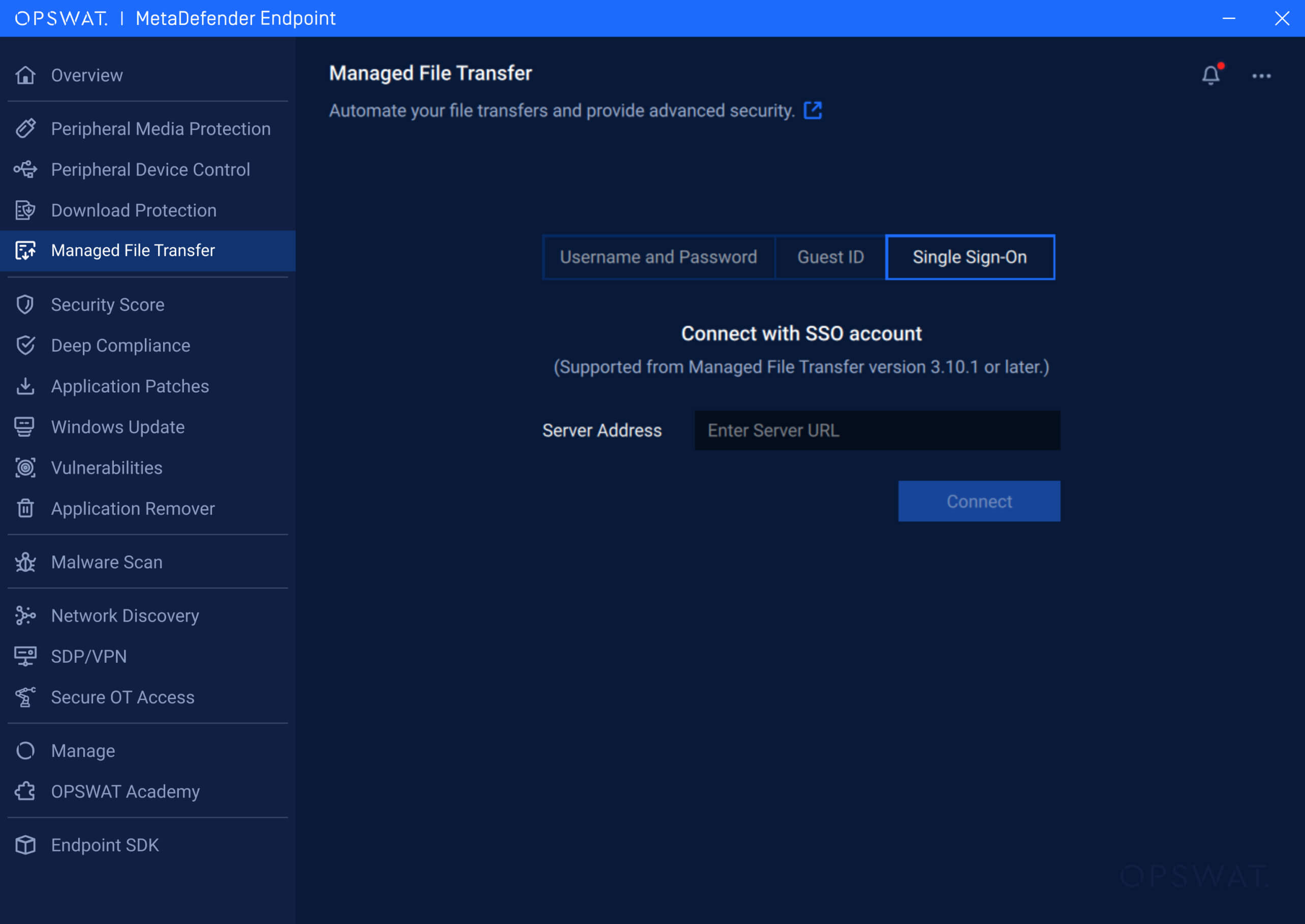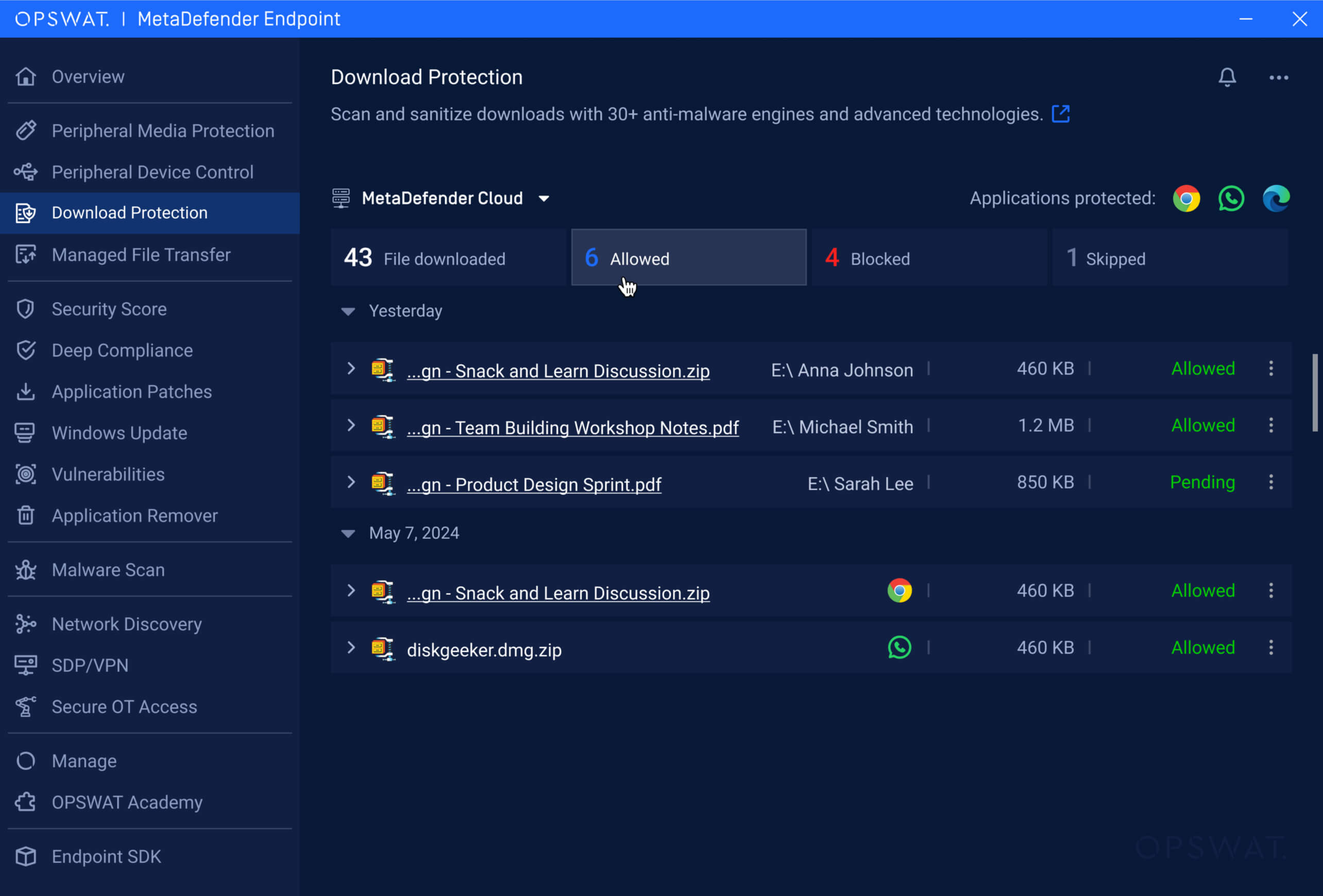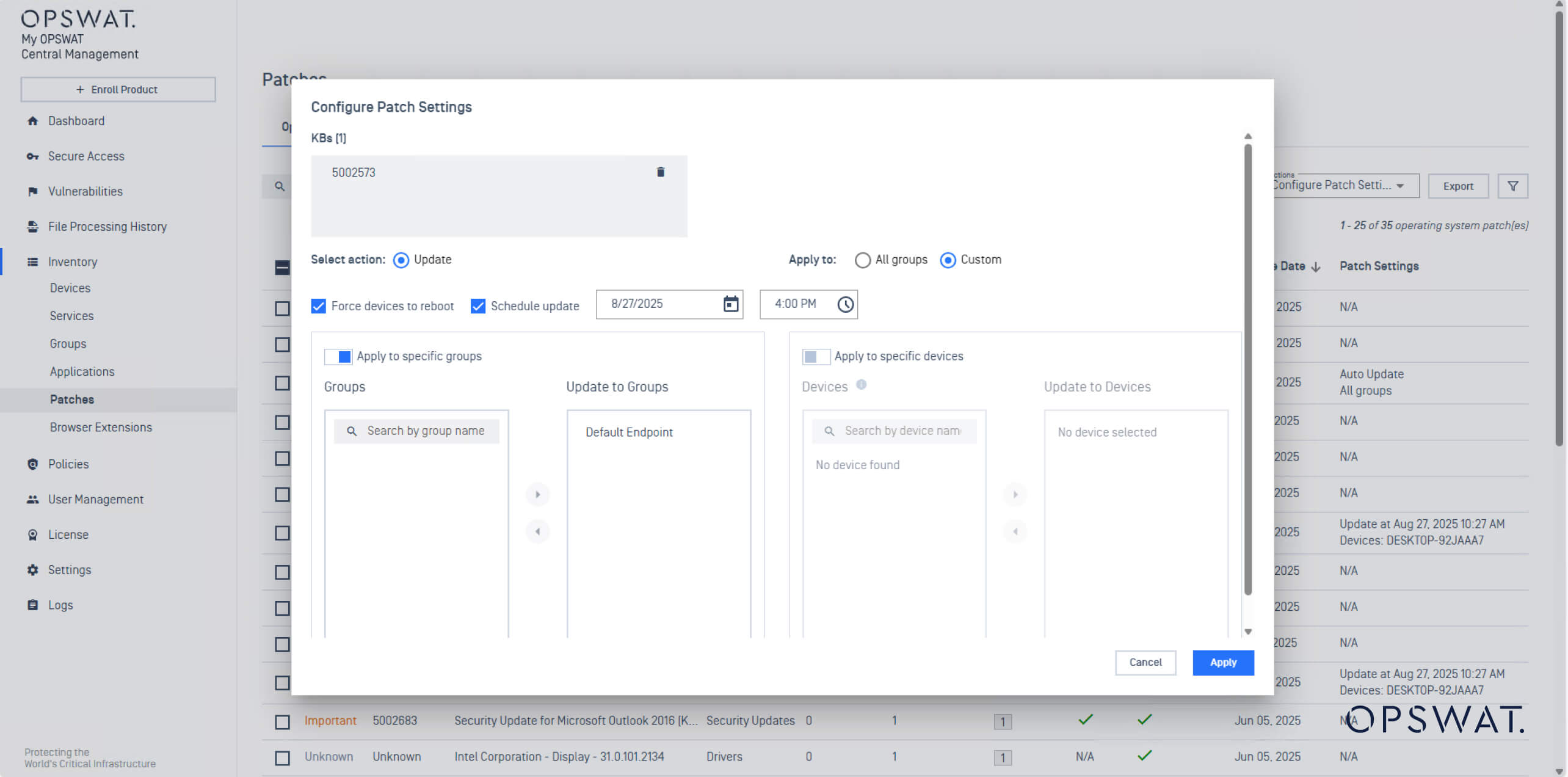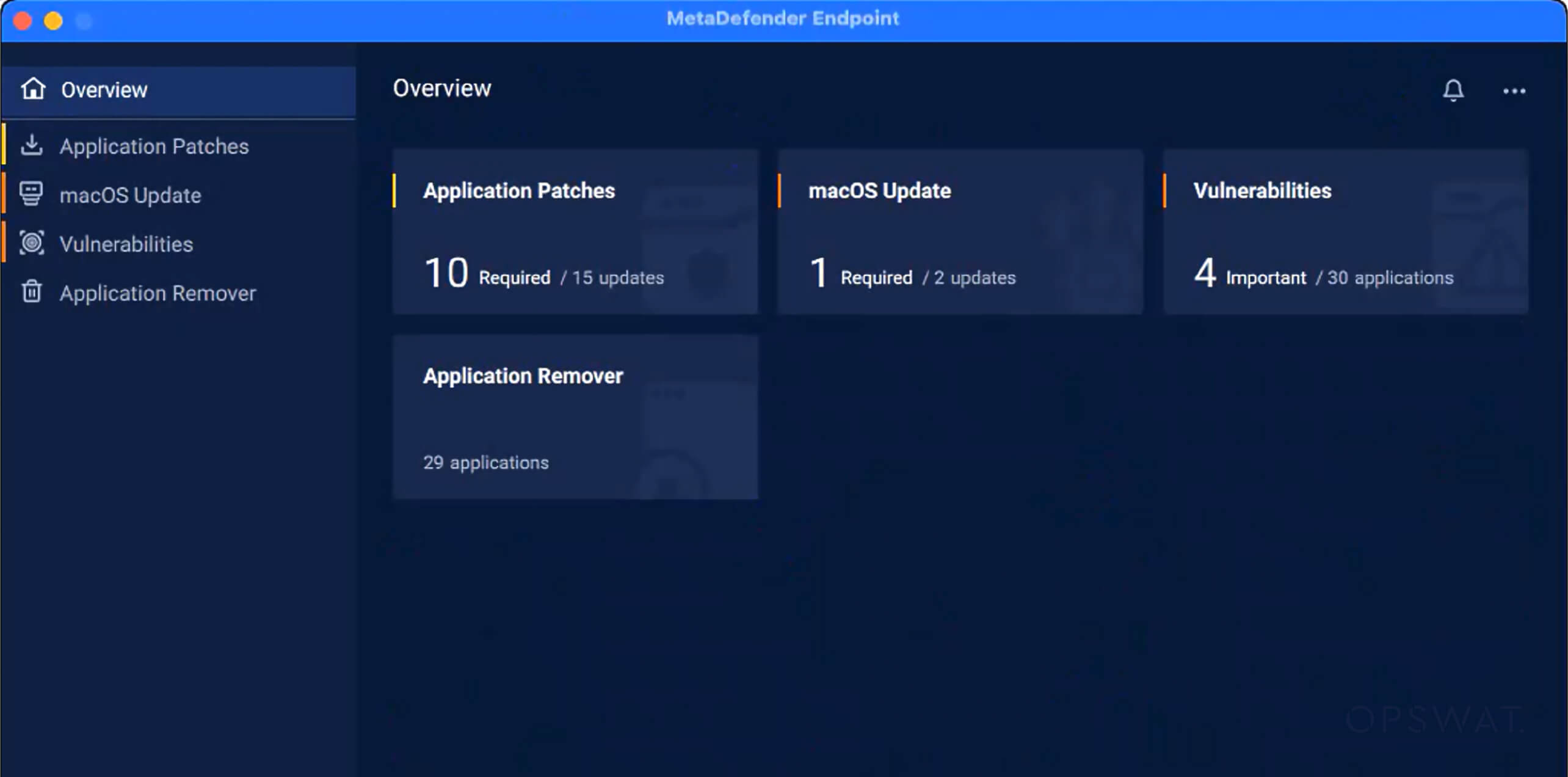This MetaDefender Endpoint release includes various features and enhancements across Windows (v7.6.2509), macOS (v10.4.2509), and Linux (v15.6.2509) platforms, in addition to OPSWAT Media Validation Agent (OMVA) (v2.0.17) and MetaDefender Endpoint Validation (v3.1.2509). These additions are designed to enhance endpoint security and compliance, optimize performance, and make it easier for MetaDefender Endpoint users to stay protected against peripheral and removable media threats.
Single Sign-On for Managed File Transfer
Single Sign-On (SSO) support has been added to the Managed File Transfer feature for a seamless and secure file-sharing experience. This SSO support eliminates the need to log in multiple times to access the file transfer feature for simplified workflows and strengthened security.

Expanded Download Protection with Status Tabs
The Download Protection screen has been redesigned for a more intuitive and insightful experience. This interface now includes clickable tabs for Total Files Downloaded, Allowed Files, Blocked Files, and Skipped Files. The new tabs offer easier review and faster navigation to monitor download activities and support decision-making.

Greater Patch Management Control with Flexible Scheduling
This release introduces flexible patch scheduling to give administrators greater control over how and when patches are deployed across endpoints. Administrators can now schedule patch rollouts at specific times that best suit their organization’s operational needs and priorities. This addition to patch control adds more flexibility, reduces user disruption, and helps with compliance.

Streamlined Update Management and Reboot Control for Patched Devices
This release also introduces reboot control for patched devices for better control over the patching process. From the management console, administrators can now schedule device restarts at specific times when patch installs require a system reboot.
Cache Node for Faster and More Efficient Patch Delivery
For improved performance and efficiency, administrators can now define a specific device as a cache node to support patch downloads for other endpoints within a network. This feature reduces bandwidth usage, optimizes system resources, and accelerates patch delivery, especially in distributed environments.
Enhanced Vulnerability and Patch Management for Virtual Desktop Applications
Improved support for vulnerability detection and patch management for Omnissa Horizon Client. Users can now benefit from increased security and compliance support for the installed applications on their endpoints.

Stronger Application Control on Linux Devices
MetaDefender Endpoint now includes stronger application control for Java platforms on Linux devices, including Oracle JDK and Oracle OpenJDK. The updated detection mechanisms enhance the accuracy in identifying Java applications, enabling administrators to strengthen the control over all applications and enhance the overall security across the organization.
MetaDefender Endpoint Validation: Real-time File Counting Notification
To increase visibility and enhance user experience, the validation pop-up now displays real-time file count progress. This enhancement provides users with live updates reflecting the current count for more transparent status tracking of the validation process.
OPSWAT Media Validation Agent: Memory Consumption Optimization
To enhance the overall system performance, we’ve optimized the agent’s workflows and internal mechanisms to reduce memory consumption during runtime. These improvements help agents run more efficiently, using fewer system resources without compromising functionality. As a result, users benefit from improved device performance and productivity, particularly on devices with limited memory or when running multiple applications simultaneously.
Next-Level Peripheral and Removable Media Protection
Discover why worldwide organizations, institutions, and entities trust MetaDefender Endpoint to protect critical endpoints. Talk to an expert today to learn more.

